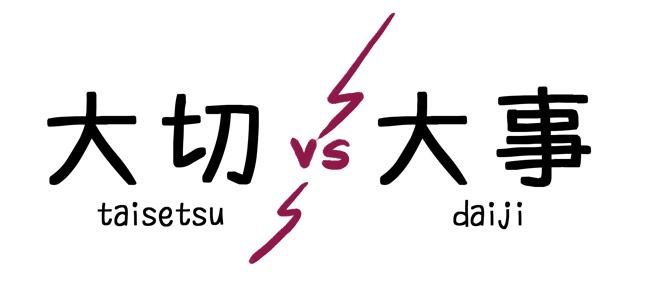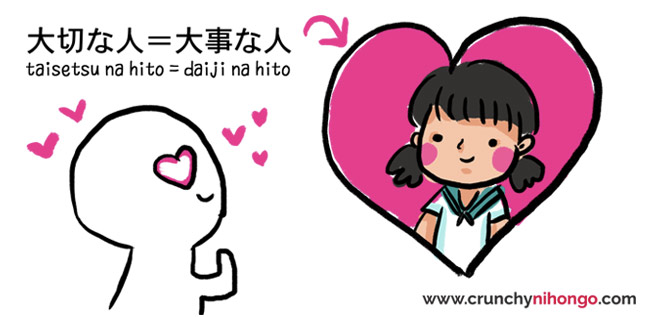Hi ! We hope this site helps you! ٩(ˊᗜˋ*)و As an Amazon Associate, we earn from qualifying purchases without additional cost. Click to read more about our Privacy Policy or Affiliate Disclosure
After hearing these words a few times and checking out your dictionary, this question might pop up in your mind. What is the difference?
First of all, language is not similar as mathematics where 1 + 1 would equal 2. Languages are flexible, evolving and different person might have different views, so don’t be too strict with the meaning of words when learning language.

Now, if you asked native people, they would say this 2 words means the same and in most cases are interchangeable. But this is not what we want to talk about today. Let’s learn about the subtle difference between them 😀
Overall they both used to express the importance of something/someone. But with a different feeling of importance. In 大切 (taisetsu), a more self-explanatory word would be “precious”. While in 大事 (daiji), it would be important/relevant.
Compared in English, precious child and important child would have a different nuance to it right? A precious child means someone whom is dear to you, your beloved. While important child have a more “cold” nuance and is more appropriate when used to describe “important document” instead.
But as what we’ve wrote above. Language is very flexible. in Japanese the speaker who said 大事な子供 (daiji na kodomo) might have the same intention as 大切な子供 (taisetsu na kodomo). So they both could mean “beloved child”. Another example is, when talking about someone you love, both 大事な人 (daiji na hito) and 大切な人 (taisetsu na hito) have the same meaning.

As you can see, there are no big difference between them, and that is why the natives thought them as similar/interchangeable. Maybe the best answer is that in 大事 (daiji), the importance is seen as more objective based. While in 大切 (taisetsu) is more subjective (vary from person to person depending on their emotional aspect).
Hope it helps! Happy learning! 。゚✶ฺ.ヽ(*´∀`*)ノ.✶゚ฺ。
